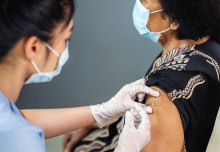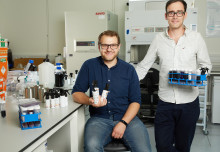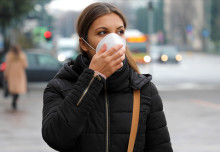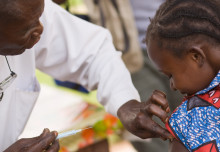

ROYAL RECOGNITION
Imperial awarded Queen’s Anniversary Prize for COVID-19 response
Imperial College London has been awarded a Queen’s Anniversary Prize for its response to the COVID-19 pandemic.



Imperial awarded Queen’s Anniversary Prize for COVID-19 response
Imperial College London has been awarded a Queen’s Anniversary Prize for its response to the COVID-19 pandemic.


$2 million investment for study investigating how vaccines work inside cells
A new $2 million project will help study how our ancestry and diversity influence the way vaccines work in our cells.


What can be expected of COVID-19 this winter?
The UK is likely to face a substantial wave of COVID-19 infections, hospitalisations and deaths this winter, new modelling suggests.


Please go out and get your booster vaccine ASAP – Professor Azeem Majeed
COVID-19 vaccines are protecting us, and we will need to continue vaccinating to keep that protection, says Imperial expert.
 4
4


Audio
Podcast: Healthy environments, polio progress, and colour-change hygiene checker
In this edition: What makes a healthy environment, the final steps to eliminate polio, and a test for proper cleaning.


Q&A: COVID-19 vaccines in pregnancy
How safe are COVID-19 vaccines in pregnancy, and why is it important to include pregnant women in clinical trials?


Vaccine passports linked to COVID-19 vaccine hesitancy in UK and Israel
A new study from Imperial College London has found a link between COVID-19 vaccine hesitancy and a perceived lack of free will over vaccine passports.


Dog vaccination essential for preventing rabies spread to humans and animals
A coordinated and sustained programme of dog vaccination is essential for preventing rabies spread to humans and animals, according to new research.


New vaccine study to investigate durability of COVID-19 immunity
UK Research and Innovation (UKRI) funding will support new research into the durability of COVID-19 immunity after vaccination and natural infection.


Vaccines given in last 20 years could prevent 50 million deaths in LMICs
Vaccinations given in low- and middle-income countries (LMICs) in the last 20 years will prevent 50 million deaths from infectious diseases.